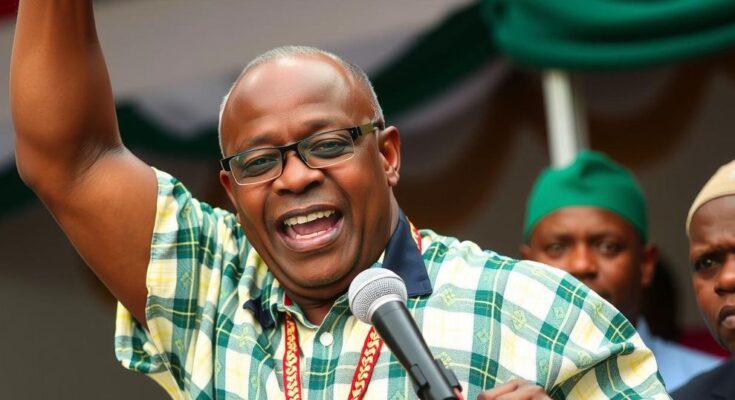Former President John Dramani Mahama has won Ghana’s presidential election with 56.55% of the votes, defeating Vice President Mahamudu Bawumia, who has conceded. The election saw a voter turnout of 60.9% and reflects a significant change in the political landscape as Mahama aims to address economic issues faced by the nation.
The Electoral Commission of Ghana has officially announced that former President John Dramani Mahama has emerged victorious in the recent presidential election held on Saturday, receiving 56.55% of the votes. The election results, which are provisional, reflect votes counted from 267 out of 276 constituencies, indicating a voter turnout of 60.9%. Mahama’s main contender, current Vice President Mahamudu Bawumia, conceded defeat in both presidential and legislative elections on Sunday, aiming to mitigate tensions following the electoral process. Mahama, reinstating his political influence after serving as President from 2012 to 2016, has critiqued Bawumia’s candidacy as a continuation of policies that contributed to significant economic challenges in Ghana.
The political landscape in Ghana has recently been marked by the presidential election held on Saturday, where voter engagement and choice reflected the citizens’ desire for change. John Dramani Mahama, who previously held the presidency, sought to reclaim his position, presenting himself as a candidate for economic recovery. This election was crucial, given Ghana’s economic challenges and the public sentiment regarding the current administration’s policies. Acknowledging the implications of electoral outcomes for the nation’s governance further emphasizes the significance of this result.
In summary, the electoral victory of John Dramani Mahama marks a pivotal moment in Ghana’s political history, reflecting a desire for a shift in leadership after a period of economic turbulence. The former President’s return may signal new strategies aimed at addressing the challenges faced by the country. The concession by Mahamudu Bawumia aids in maintaining political stability as Ghana transitions into a new phase of governance.
Original Source: www.usnews.com




